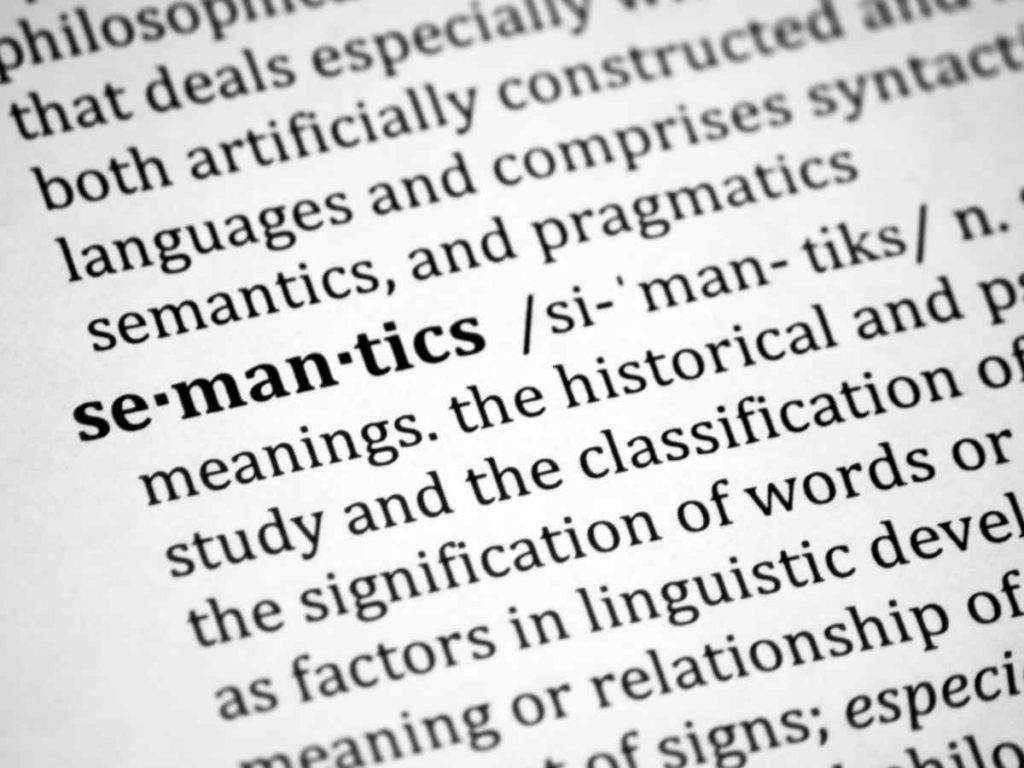
We all know how important utilising SEO can be for your company, making it easier for customers to find you and gaining more business in a long term and cheaper way than many of the other strategies out there. Semantic SEO is a relatively new development in this field which has improved and increased the way search engines understand key terms and connect you with customers. Here we will take a look at Semantic SEO, explaining exactly what it is and how it can be used to benefit you.
This shift towards understanding natural language and the nuances of context within search queries represents a significant evolution in search engine technology, as demonstrated in “The Evolution of SEO: Understanding Semantic Search,” which delves deeper into the topic.
What is Semantic SEO?
Semantics refers to the meaning behind the words, and that is exactly what Semantic SEO is all about. This allows the search engine to consider the meaning behind the words used rather than simply the words themselves, lumping together enquiries that have a similar intent even if the exact phrasing differs.
In the past, search engines could only assess what was written, and variations were not taken into account. This meant that businesses had to be precise with the language used in order to be recognised in the results. Now the algorithms today allow for the meaning and context to also be taken into account, allowing more variety in the words used as long as they conform to the same intent. The semantics behind the language can be understood and used to rank the search results based on this as well as simply the words used giving more accurate and suitable results.
The two key components of this are the meaning and intent, both of which are now considered as a part of the whole. Here we have a brief description of each as they affect Semantic SEO:
- Intent – by looking at what exactly a customer wants to get out of the search, the engine can better fill this need. The intent is exactly that – why they are performing the search and to what end. This now contributes to the ranked results.
- Meaning – as stated semantics is all about meaning, the actual meaning in the words and phrases used to convey the intent. Some words can have several meanings, or a phrase might suggest a topic without using the exact words. Semantic SEO attempts to use the correct meaning to give more relevant results and a better experience for the user.
Combining intent and meaning, Semantic SEO is the way forward to give the best results for consumers and businesses alike. When the goal and end game of the search is taken into account with the proper understanding of what they want, the ranked results will better meet that goal.

What are the advantages of Semantic SEO?
Now that we have a greater understanding of what Semantic SEO actually is, we can now look at the advantages and how it can be helpful and important to utilise for your business. You should always be working towards optimal search results through your SEO, and Semantic SEO is another excellent way to get your listings where they need to be. Here we will look at some of the advantages associated with this enhanced understanding of meaning and intent:
- The system is harder to trick – in the past when search engines simply looked for keywords it was fairly simple for any website or company to load up on what was quite often rubbish content that repeated said keywords over and over. This would raise their ranking without any regard for the relevance to the query, and without taking quality into account. Now with Semantic SEO it is not merely about having the right words but also the right meaning to suit the search, so you are more likely to appear to the right people.
- It makes the search engine easier to use and more relevant – considering the intent and meaning ensures that the customer is more likely to find the right results with ease. Semantic SEO is a more intuitive way of using searches to match listings to users, getting rid of the utterly unrelated results that used to pop up regularly because of a simple misunderstanding.
- You can appear higher in the rankings to the right people and get a higher conversion rate – by including more than just basic keywords, but approaching whole ideas and topics that make you a more relevant result matching the customers intent you can raise your ranking and target those who really are looking for you.
Conclusion
Semantic SEO is an updated and more intuitive way to look at how people search for results, focusing not just on the exact words used but the meaning and intent behind them. By updating your own practices and putting together a more complete topic to match that intent you can improve your SEO, appear to the relevant customers and increase your profits too.
